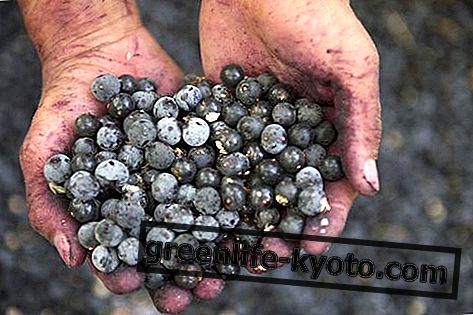
Water is necessary for carrying out all the metabolic processes of the organism; in particular it allows: digestion; the solution and transport of nutrients, enzymes, hormones throughout the body; the elimination of all waste products through kidneys, lungs and skin; to keep the body temperature hot by its own evaporation through the epidermis; the acid-base balance of the body.
Water also enters the formation of many physiological liquids, such as the ocular, synovial, cerebro-spinal, amniotic and those of secretion of the digestive, respiratory and urinary systems.
The daily water requirement in a normal individual is approximately 2.5 liters. this quantity, taken both by drinking and through food, balances spills that occur through urine, faeces, breathing and sweating.
Under normal conditions, a good habit is to drink from one liter to one and a half liters of water per day (from six to eight glasses), distributed throughout the day, making sure that it is not too cold, and limiting its introduction during meals, so as not to excessively dilute gastric juices.
The daily water requirement is related to factors such as age, physical activity, nutrition and climate.
However, there are situations in which a greater supply of water becomes important: when following a diet that is too rich in proteins, to facilitate the elimination of waste; in the feeding of infants, who have a greater need; in the diet of the elderly, who have less thirst, which leads them to drink little; when living in very hot and humid environments; in case of high fever, vomiting and persistent diarrhea, or when there is an excess amount of urine; in case of therapy with drugs or remedies that favor diuresis.
In some cases, instead, it is important to contain water consumption; for example, in the case of heart failure or kidney disease there may be an accumulation of water in the different tissues, because the body is unable to eliminate the excess amount.
All drinking water contains minerals, but by law only those that meet the following requirements can be called minerals : they originate from a water table or from an underground reservoir; that they have healthy properties, due to the presence of particular mineral salts and trace elements; that they are already drinkable at the source and are bottled as well as they spring from the source.
The addition of gas makes the water more palatable and improves its organoleptic characteristics: carbonated water quenches the thirst better, because the bubbles anesthize the nerve endings of the mouth and cause dilation of the stomach with apparent satiety; they also perform a slight bacteriostatic activity. These waters are contraindicated in subjects suffering from stomach acid, gastritis or ulcers and intestinal stagnation.
The organoleptic and content characteristics of the different mineral waters are basic to make considerations on their use in the different ages and physiological and pathological conditions of life.













